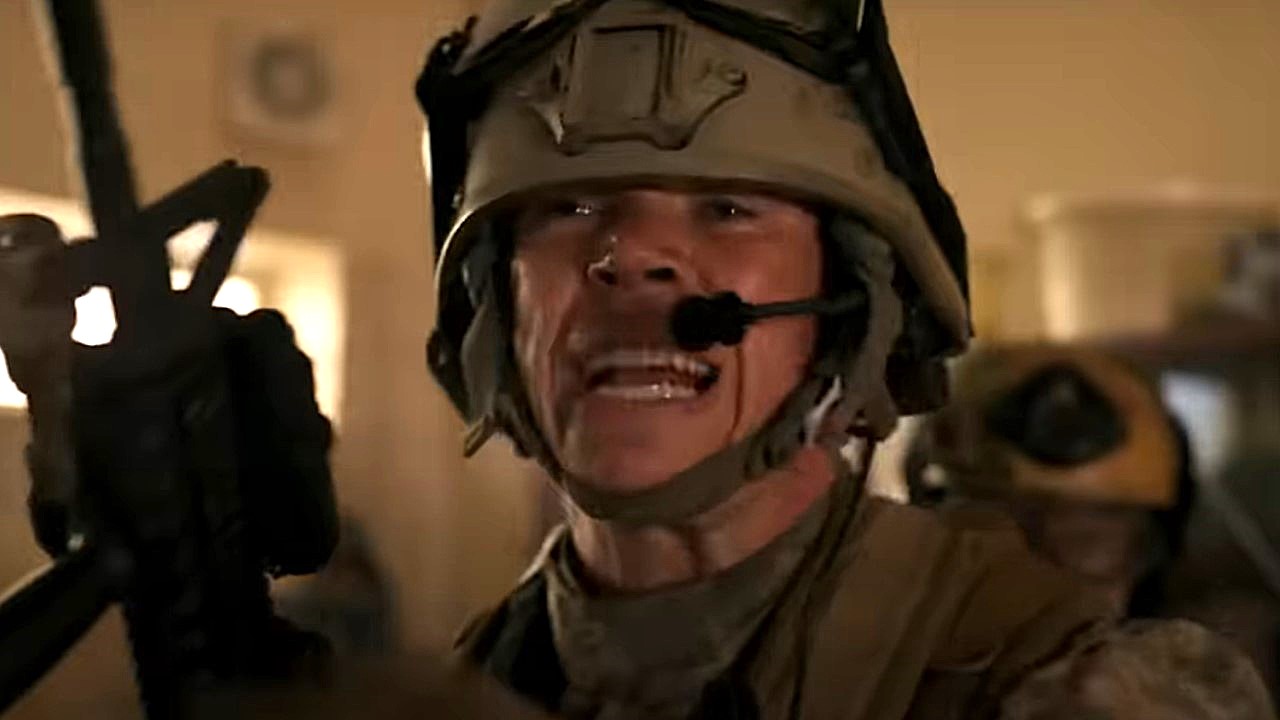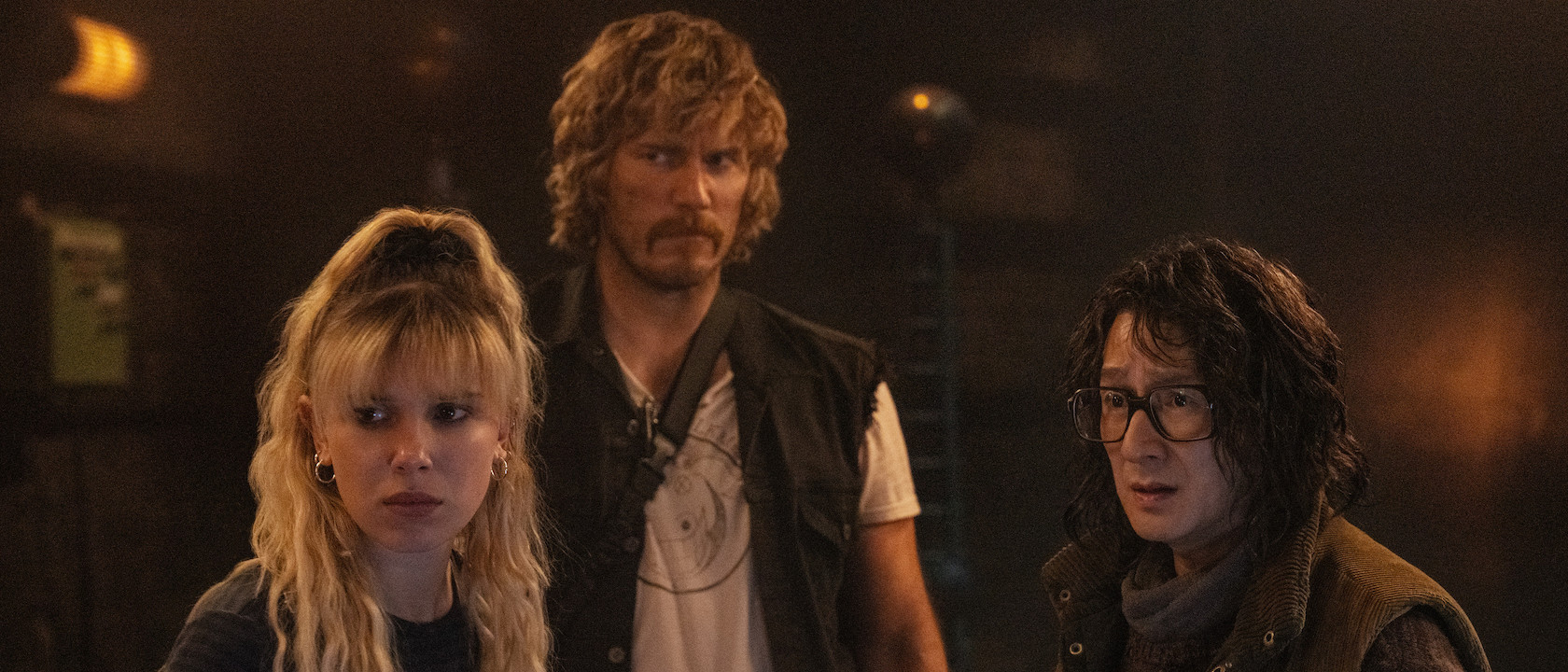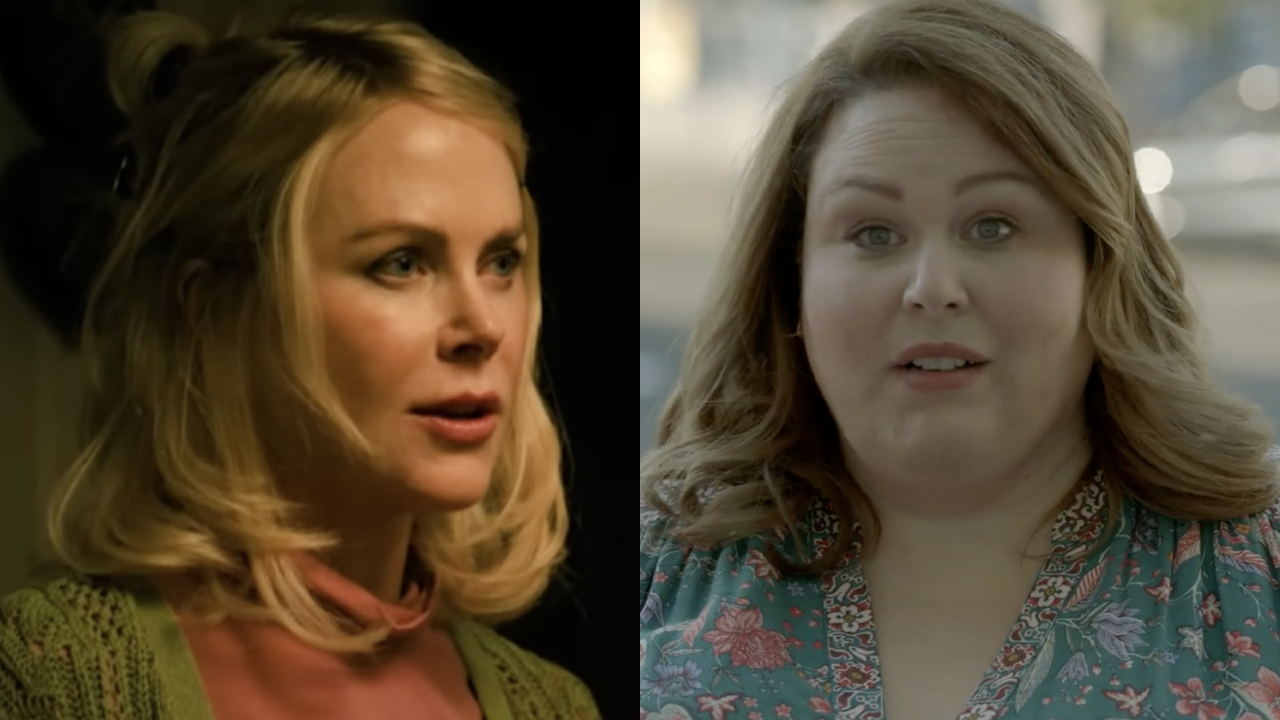One of my go-to gripes about movies these days is that titles tend to really suck. There is a tendency for them to be far too generic and simple, and in their generic simple-ness, they often fail to properly represent the story and/or are totally forgettable (I have a whole special rant about features that go the “common first name” route that I can save for another time). In a vacuum, Warfare from writer/directors Ray Mendoza and Alex Garland would be a film that I would normally complain about in this context, but in this particular case, the generic and simple title is actually perfect: as its name suggests, it’s a cinematic experience of warfare, and it is breathtaking.

Release Date: April 11, 2025
Directed By: Ray Mendoza and Alex Garland
Written By: Ray Mendoza & Alex Garland
Starring: D'Pharaoh Woon-A-Tai, Will Poulter, Cosmo Jarvis, Taylor John Smith, Michael Gandolfini, Kit Connor, Finn Bennett, Adain Bradley, Noah Centineo, Evan Holtzman, Henry Zaga, Joseph Quinn, and Charles Melton
Rating: R for intense war violence and bloody/grisly images, and language throughout
Runtime: 94 minutes
A high-concept thriller based on a true story, the movie serves to take you back to the year 2006 and embed you with a group of soldiers operating during the Iraq War, and it’s an utterly transfixing 94 minutes that flies by as it nails you to your seat in suspense, terrified of what may happen next. It makes no apologies for reality, and it doesn’t go through the process of making everything specifically cinematic with dumbed-down jargon, sweeping narrative developments or constructed character arcs. It exists to be a recreation of actual events from the memories of co-director/co-writer Ray Mendoza, and in its impeccable verisimilitude and constant intensity, it’s an awesome piece of work.
After a perfect opening establishing the period setting, with gleeful soldiers gathering around a laptop to witness the audacious music video for Eric Prydz’s “Call On Me,” a unit of U.S. Navy SEALs executes maneuvers at night in Ramadi, Iraq – insurgent territory – to occupy a two-floor residence. In daylight hours, things are quiet but intense in the apartment building, as various positions are set up to keep an eye on locals and track enemy behavior. The streets are monitored through the lens of a sniper rifle… and when things go to hell, they get there quickly.
The unit is discovered and targeted, with shots fired and grenades thrown, but everything goes from bad to worse during an attempted evacuation. The SEALS try to make their way to an armored personnel carrier deployed to their location, but the activation of an improvised explosive device aborts the effort and leaves multiple dead and two badly injured. While enemy fire persists, a rescue operation is initiated, and the soldiers fight to survive while they await backup and extraction.
Story is kept simple in Warfare, but its intention is conveying an experience.
The power of Warfare is found in its focus and intensity, defying cinematic convention in the process. There are no overt efforts to create specific personalities or individually introduce characters and their independent roles, and there are no heart-to-heart conversations or meaningful dialogues about life back home to de-escalate action before ramping things back up again and forge familiar pacing. These are things that I might negatively criticize in other works, but Mendoza and Garland earn this minimalism with clear intentions that end up being extremely powerful and effective.
The film’s constant mode is realism, and the spell is never broken (which is actually somewhat strange considering that my method of recognizing characters was identifying the various actors in the ensemble from their other works). It never halts action to have soldiers clearly lay out missions and objectives to each other, and radio communication isn’t dumbed down as civilian speak. Casual exposition is blissfully non-existent, but everything is also perfectly clear via context and action, and this serves to simply grip you harder amid the action. Despite the familiar faces, you’re never specifically reminded that you are watching a movie, and it is hypnotizing and powerful.
Warfare is an impeccably crafted film in its cinematography – but especially its sound.
Set in and around a single location, the scope of Warfare is very small, but that also makes it intimate, and the visceral impact of the filmmaking is massive. Whether it’s via tight close ups within the limited confines of the Iraqi household or first-person looks through the scope of a sniper rifle, the cinematography strategically entrenches the audience alongside the film’s characters throughout the first act, and thus, when the shit hits the fan, you feel like you are trapped in the nightmare right alongside them.
Deserving particularly special mention is the sound design, as no aesthetic aspect of the movie better sells the hell. When the IED explodes and rocks the armored personnel carrier, I felt like my own body was launched 10 feet into the air, and the ratatat and whistling of gunfire practically has you expecting the feeling of plaster dust on your cheeks as your eyes stay fixed on the screen. More than just shocking and terrifying noise, however, the film is also able to lock you into the characters’ various perspectives with dangerous ringing silence and a wild sequence of overwhelming radio chatter. This is a movie that you feel.
While Alex Garland’s works are usually about big ideas – from the meditations on artificial intelligence in Ex Machina to the valor of journalism in Civil War – his collaboration with Ray Mendoza is relatively uncomplicated but equally powerful. Its aim is to convey an experience, and it does so with incredible skill and emotional impact: it immerses you in its terror and horror and actually hits at your fight-or-flight response. It’s an unconventional cinematic experience, but it’s a deeply effective one.

Eric Eisenberg is the Assistant Managing Editor at CinemaBlend. After graduating Boston University and earning a bachelor’s degree in journalism, he took a part-time job as a staff writer for CinemaBlend, and after six months was offered the opportunity to move to Los Angeles and take on a newly created West Coast Editor position. Over a decade later, he's continuing to advance his interests and expertise. In addition to conducting filmmaker interviews and contributing to the news and feature content of the site, Eric also oversees the Movie Reviews section, writes the the weekend box office report (published Sundays), and is the site's resident Stephen King expert. He has two King-related columns.
You must confirm your public display name before commenting
Please logout and then login again, you will then be prompted to enter your display name.











